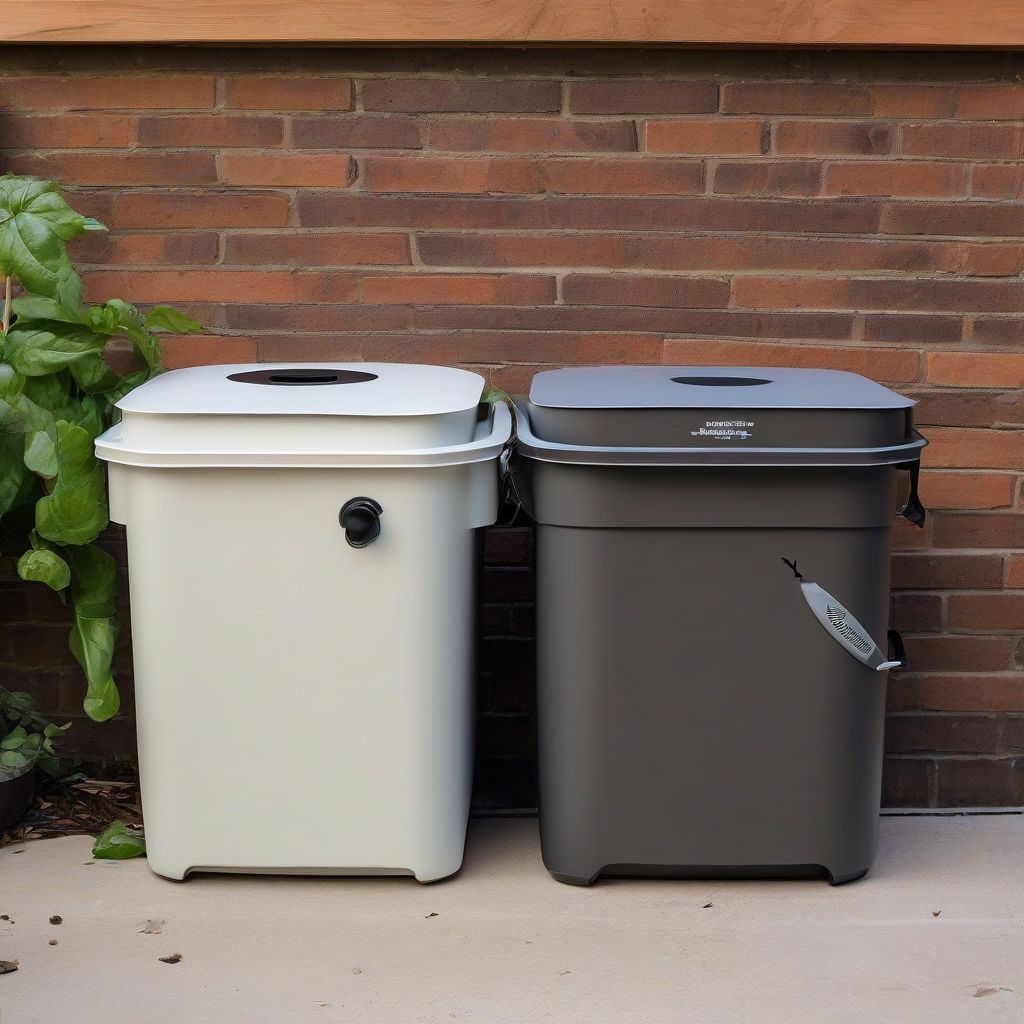Do you ever feel guilty tossing your food scraps in the trash, knowing they’ll end up in a landfill? I get it! As a nutritionist and meal planning coach, I’m passionate about healthy eating and sustainable living. The good news is that even in cramped urban settings, composting is entirely doable. Let’s turn your kitchen scraps into garden gold!
Why Compost in Your Apartment?
Before we dive into the “how,” let’s talk about the “why.” Composting in small spaces is a big deal for several reasons:
- Reduces Landfill Waste: Food waste is a huge problem, and composting helps shrink your environmental footprint.
- Creates Nutrient-Rich Soil: Say goodbye to expensive fertilizers! Homemade compost is like superfood for your plants.
- Connects You to Nature: Even in the concrete jungle, composting brings you closer to natural cycles.
Choosing the Right Composting Method
Not all composting methods are created equal, especially for small spaces. Here’s a breakdown of the best options for urban dwellers:
1. Worm Composting (Vermicomposting)
Don’t let the “worm” factor scare you! This method is surprisingly clean and efficient. Worms eat your food scraps and turn them into nutrient-rich compost.
- Pros: Great for small spaces, odorless when done right, produces high-quality compost.
- Cons: Requires a bit of maintenance (feeding the worms), not ideal for meat or dairy scraps.
2. Bokashi Composting
Bokashi uses beneficial microorganisms (effective microorganisms or EM) to ferment your food waste. It’s a great option for handling meat and dairy.
- Pros: Handles all food scraps, including meat and dairy, relatively low maintenance.
- Cons: Requires a two-bucket system, fermented compost needs further processing before use.
3. Electric Composters
These handy devices use heat and aeration to speed up the composting process, making them ideal for small spaces.
- Pros: Fast composting time, can handle a larger volume of scraps, relatively odorless.
- Cons: Can be expensive, requires electricity.
 Urban Composting Methods
Urban Composting Methods
Setting Up Your Urban Composting System
Once you’ve chosen your composting method, it’s time to set up your system:
For Worm Composting:
- Choose a bin: Opt for a stacking worm bin designed for indoor use.
- Add bedding: Create a cozy home for your worms with bedding like shredded newspaper or coconut coir.
- Introduce the worms: Red wiggler worms are the composting superstars!
- Bury your scraps: Chop food scraps small and bury them under the bedding.
For Bokashi Composting:
- Get two buckets: You’ll need one bucket for composting and another to collect the leachate (a nutrient-rich liquid).
- Add scraps and Bokashi bran: Layer your food scraps with Bokashi bran, which contains the EM.
- Press down and seal: Compact the scraps to remove air and seal the bucket tightly.
For Electric Composting:
- Choose a location: Find a well-ventilated spot for your electric composter.
- Add your scraps: Follow the manufacturer’s instructions for adding scraps and maintaining the composter.
Tips for Successful Urban Composting
Here are some extra tips to ensure your composting journey is a success:
- Start small: Don’t overwhelm your system with too much waste at once.
- Maintain the right moisture: Your compost should be as damp as a wrung-out sponge.
- Provide adequate aeration: Turn your compost regularly (for traditional methods) or rely on your electric composter’s aeration system.
- Be patient: Composting takes time! It’s a process, not a race.
Composting Resources and Community
Connecting with fellow composters is a great way to stay motivated and get inspired!
- Local Resources: Check for composting workshops or community gardens in your area.
- Online Communities: Join online forums and groups dedicated to urban composting.
Conclusion
Composting in small urban spaces is not only possible but also incredibly rewarding. By embracing composting, you’re reducing your environmental impact, creating nutrient-rich soil for your plants (or a local community garden!), and connecting with a more sustainable way of life.
Are you ready to embark on your urban composting adventure? Share your thoughts and experiences in the comments below! And for more tips on sustainable urban living, check out my articles on How to Reduce Waste in an Urban Setting and How to Plan and Design an Urban Garden.
[amazon bestseller=”Composting”]
